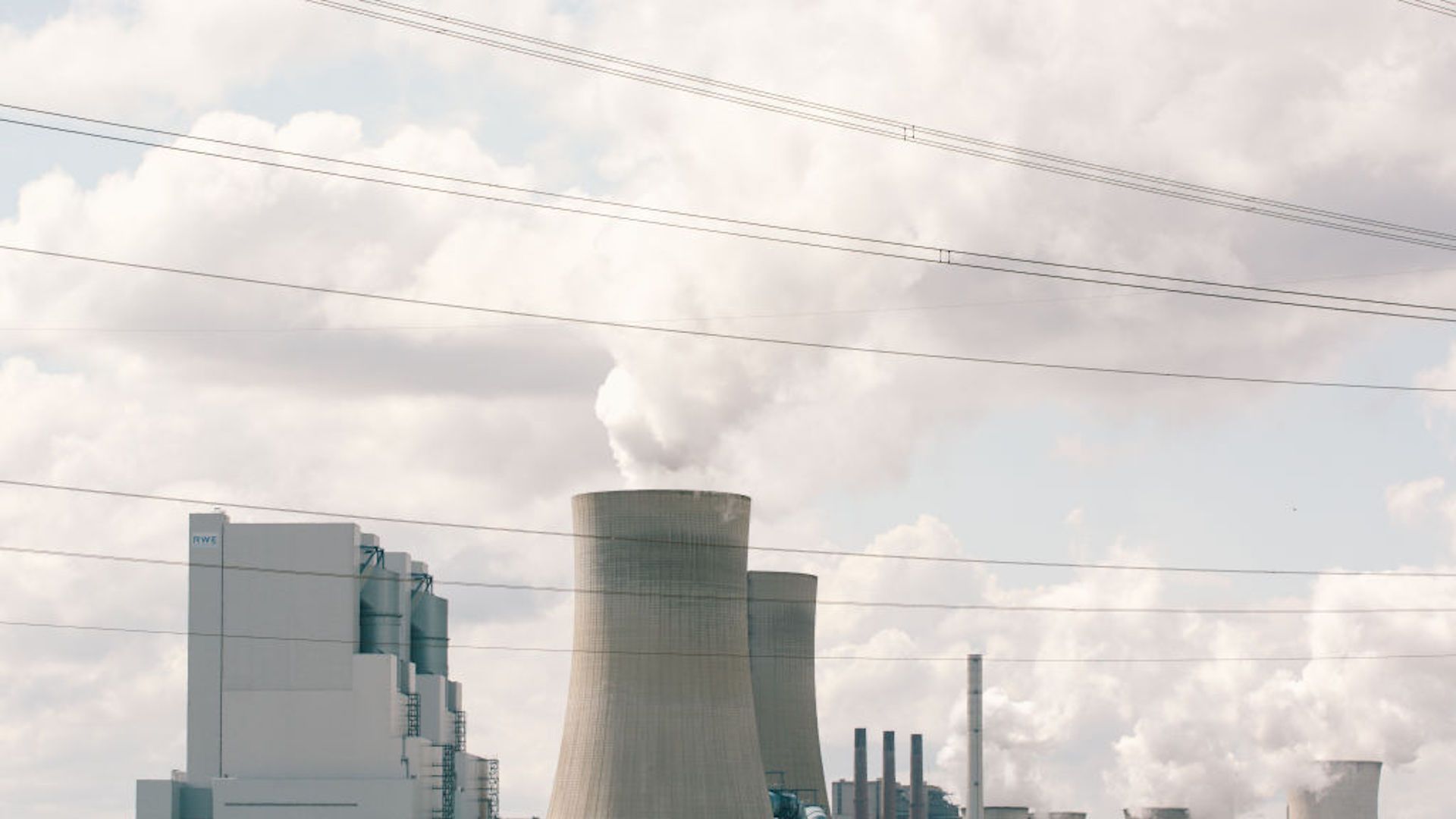Sep 27, 2021 - Energy & Climate
Europe's energy price crisis threatens CO2 cuts
Add Axios as your preferred source to
see more of our stories on Google.

Power station in Neurath operated by RWE AG is seen near Rommerskirchen, Germany on August 10, 2021. Photo: Tang/NurPhoto via Getty Images
